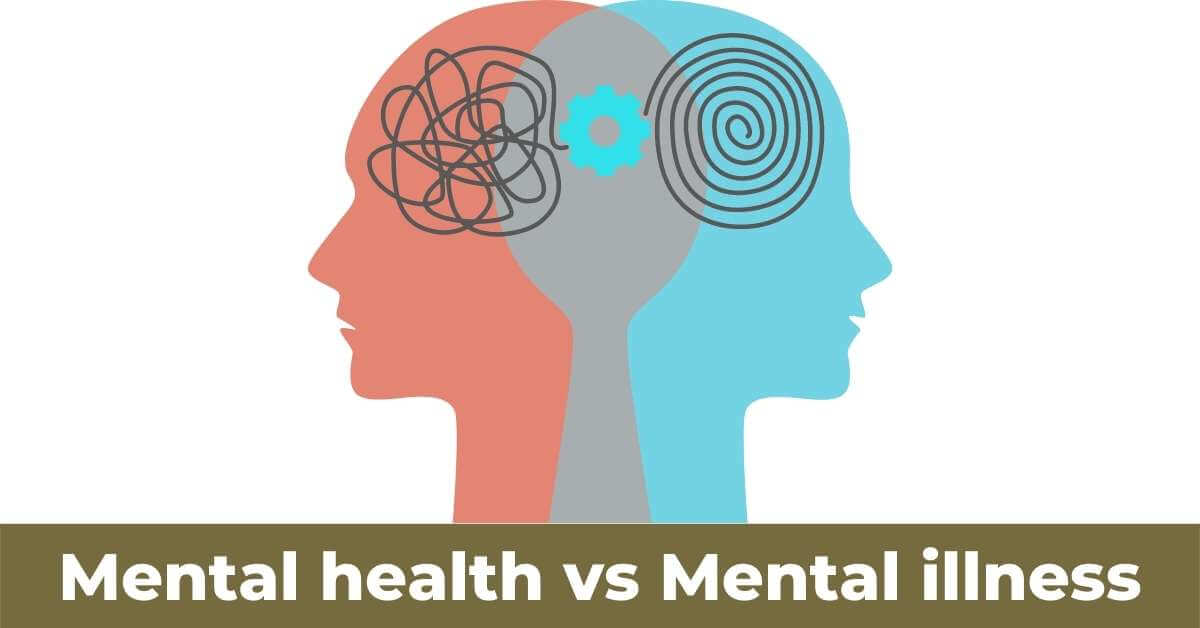Definition of mental health
Mental health refers to our emotional, psychological, and social well-being. It influences our thoughts, emotions, and behaviors. Additionally, it influences how we respond to stress, interact with others, and make decisions.
Mental health is a condition of mental wellness that enables people to manage life’s stressors, develop their potential, study and work effectively, and give back to their communities. It is a crucial element of health and well-being that supports both our individual and group capacity to decide, form connections, and influence the world we live in. Mental health is a fundamental human right. Additionally, it is essential for socioeconomic, communal, and personal development.
Mental health encompasses more than just the absence of mental diseases. It is experienced on a complex continuum, with variable levels of difficulty and anguish and potentially very different social and clinical results, and it exists on this spectrum in different ways for every individual.
Mental health issues include psychosocial impairments, mental illnesses, and other mental states linked to high levels of suffering, functional limitations, or risk of self-harm. Although it is more common for those who have mental health issues to have lower levels of mental well-being, this is not always the case.
Nursing Revalidation provides CPD accredited Mental Health Awareness course.
Definition of Mental illness
Mental illness is defined as “changes in emotion, thinking, or behavior—or a mix of these.” Mental diseases are accompanied with distress and/or difficulties functioning in social, job, or family activities.
Mental health disorders are abnormalities in a person’s thought, feeling, or behaviour (or a mix of these) that indicate a problem with mental function. They disrupt or make it difficult to participate in family, job, or social activities.
Mental illness, often known as mental health disorders, refers to a wide spectrum of mental health issues – disorders that impact your emotions, thinking, and behavior. Depression, anxiety disorders, schizophrenia, eating disorders, and compulsive behaviours are a few examples of mental illnesses.
Many people occasionally experience problems with their mental health. However, a mental health issue turns into a mental disease when persistent symptoms put you under a lot of stress and impair your capacity to perform daily tasks.
A mental illness can make your life miserable and interfere with regular activities including work, school, and relationships. Most of the time, a combination of medicine and talk therapy helps control symptoms.
Nursing Revalidation provides CPD accredited Mental Health Awareness course.
What is difference between mental health and mental illness?
The terms “mental health” and “mental disease” are commonly used interchangeably, but they have different meanings. Mental illness is a medical term for a condition that affects one’s thoughts and behaviors, whereas mental health refers to anyone’s state of mental and emotional well-being.
Like physical health, everyone has mental health as well. There is no health without mental health, according to a well-known phrase from the World Health Organization. Not everyone will develop a mental illness over the course of their lifetime, but everyone will have periods of difficulty with their mental well-being (also known as their mental health), just as we all experience periods of difficulty with our physical well-being.
When we discuss our mental well-being, we are referring to our emotions, thoughts, and feelings as well as our capacity to problem-solve and conquer challenges, our social relationships, and our comprehension of the environment.
A mental illness is one that interferes with a person’s ability to think, feel, act, or interact with others. There are many various types of mental diseases, and each one affects people in a different way due to its unique symptoms.
Best course related to mental health and mental illness
Nursing Revalidation provides CPD accredited Mental Health Awareness course.
This course explains the difference between mental health and mental illness. It covers the symptoms of a number of the most common mental illnesses so you will know what to look out for or what to expect if you are working with someone with one of these conditions. As well as providing some practical advice on how you can work effectively with those affected by these conditions.
The bottom line
There is a huge difference between mental health and mental illness. Mental illness is defined as “conditions that impair a person’s thinking, feeling, mood, or behavior.” These can include but are not limited to schizophrenia, bipolar disorder, anxiety, or depression.
Our emotional, psychological, and social well-being are reflected in our mental health. Mental health has a significant impact on how we connect with others, solve problems, and make decisions by affecting “how we think, feel, and act.”

